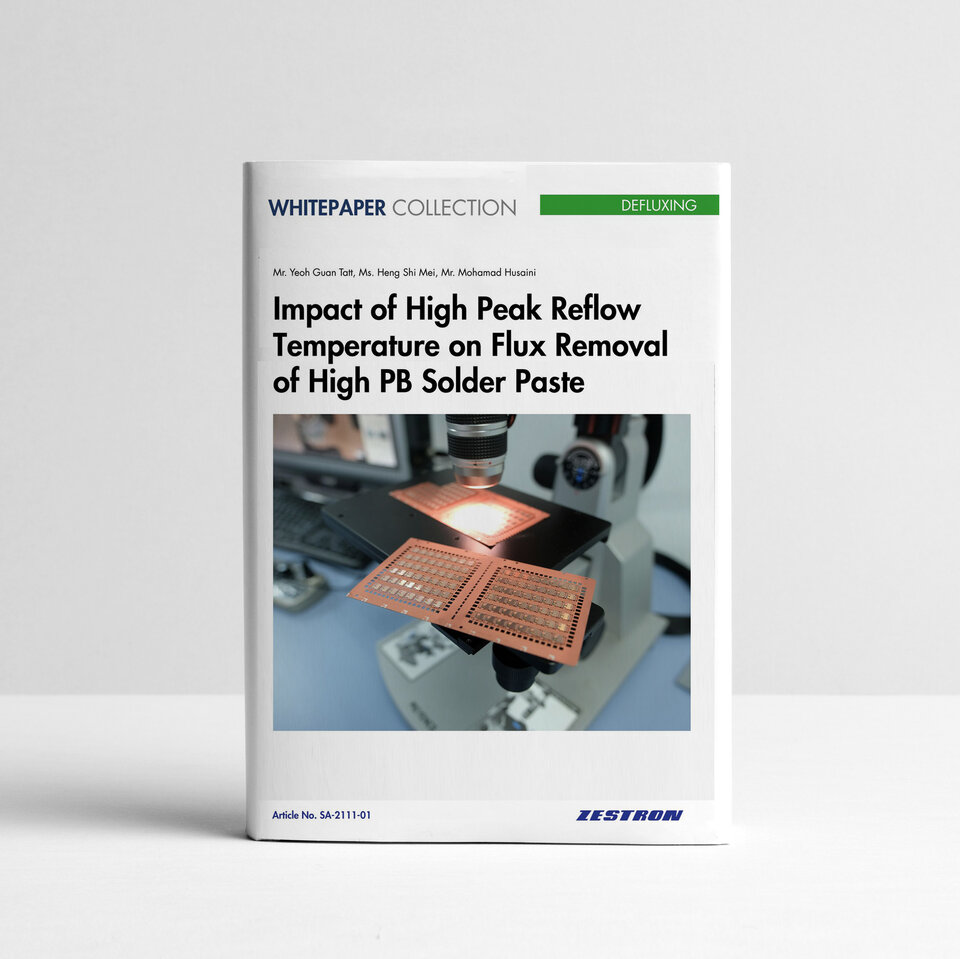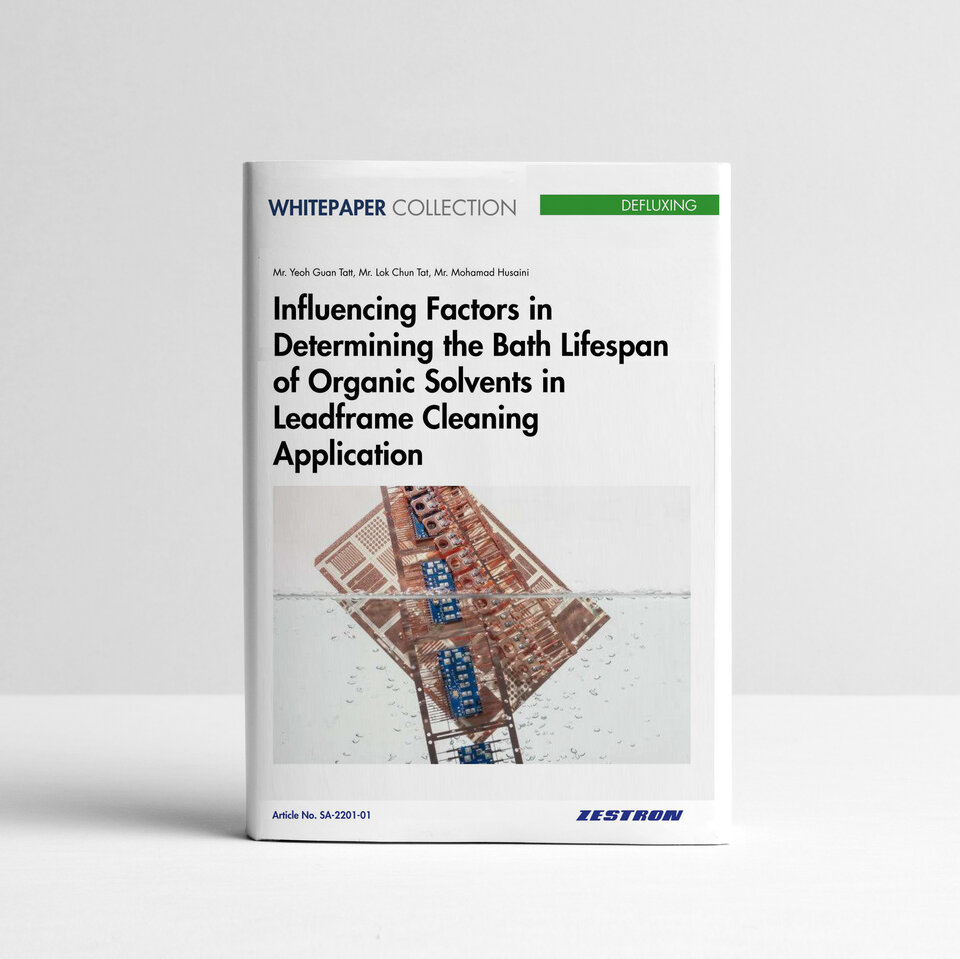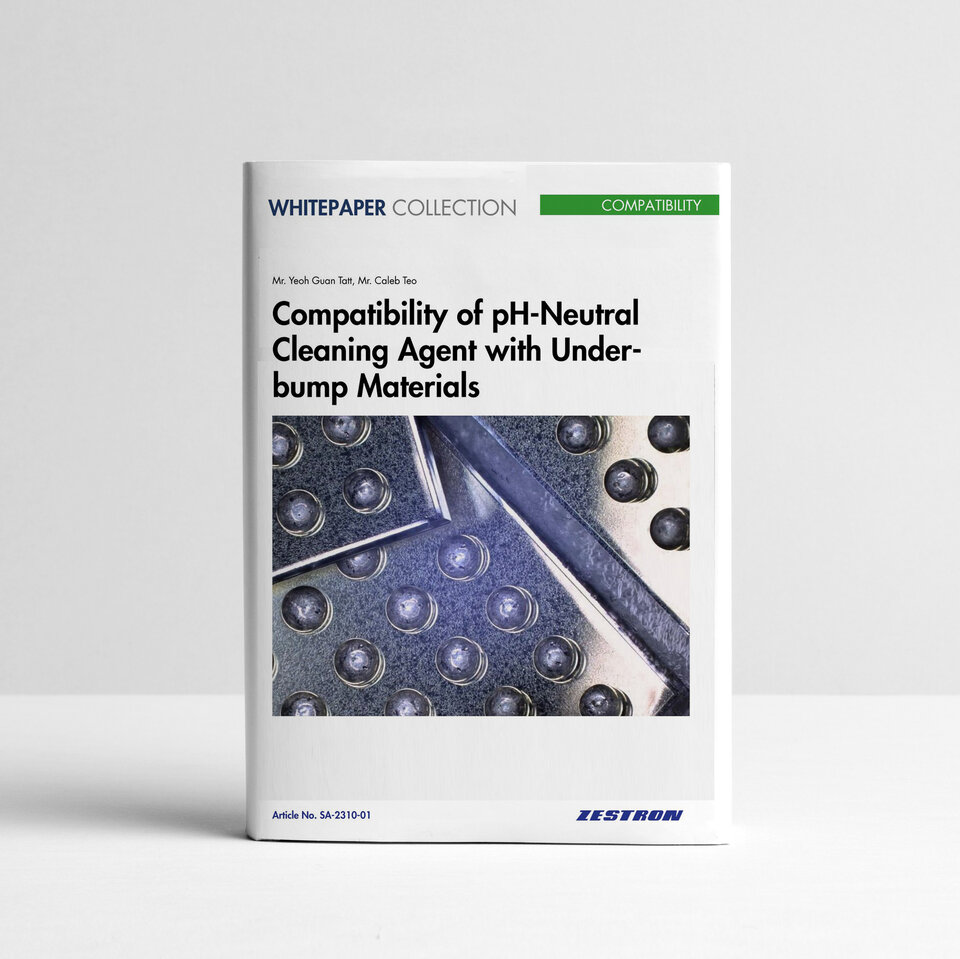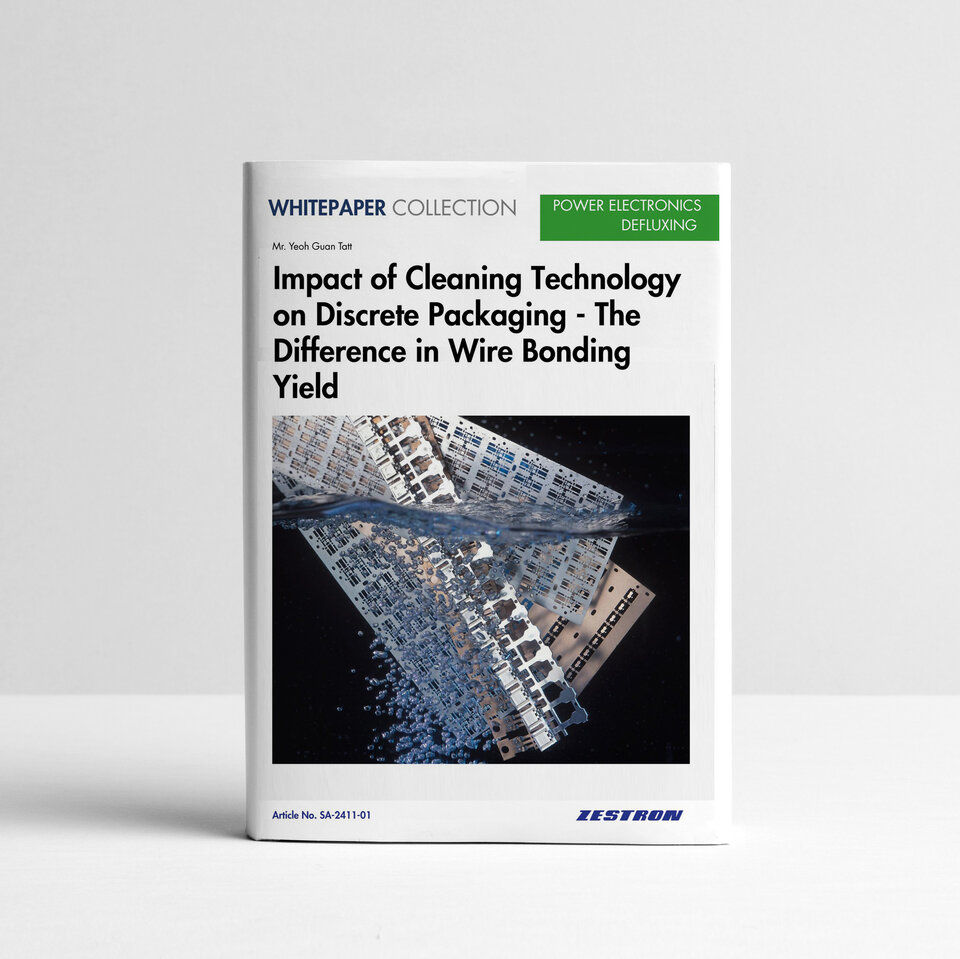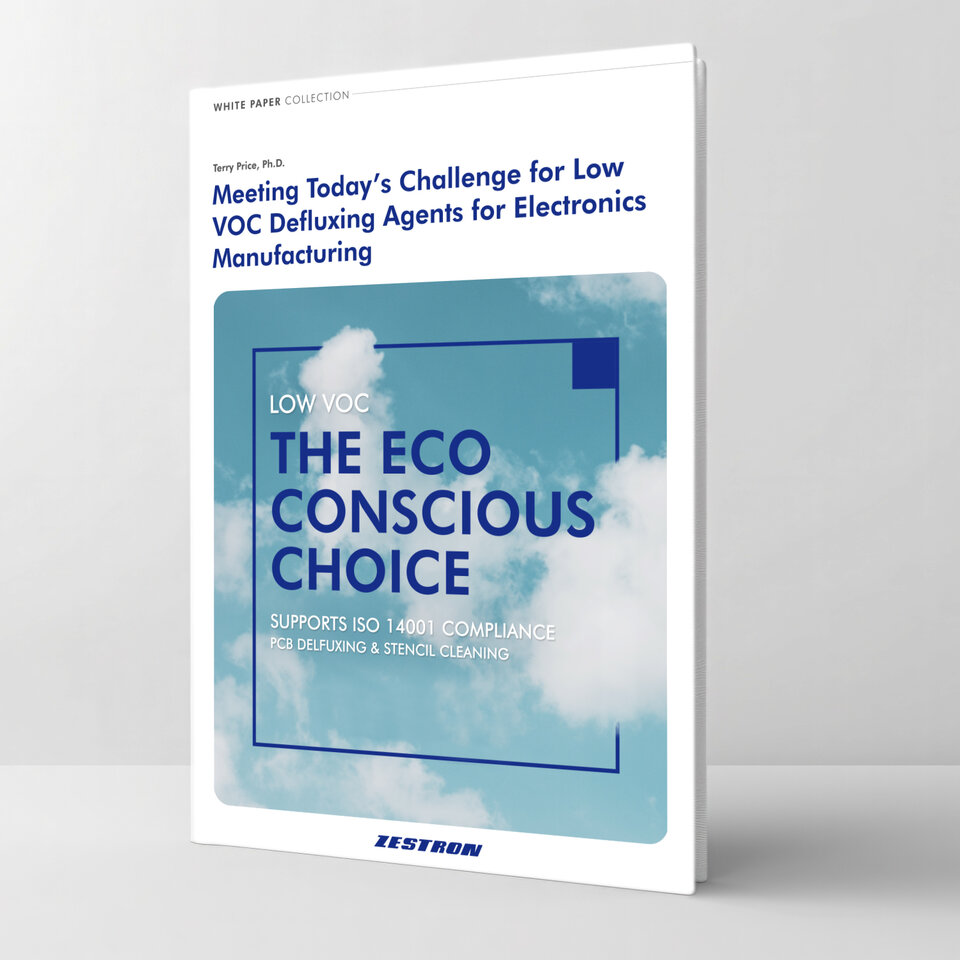Critical Cleaning Requirements to Overcome Advanced Packaging Defluxing Challenges
WHITEPAPER-COLLECTION
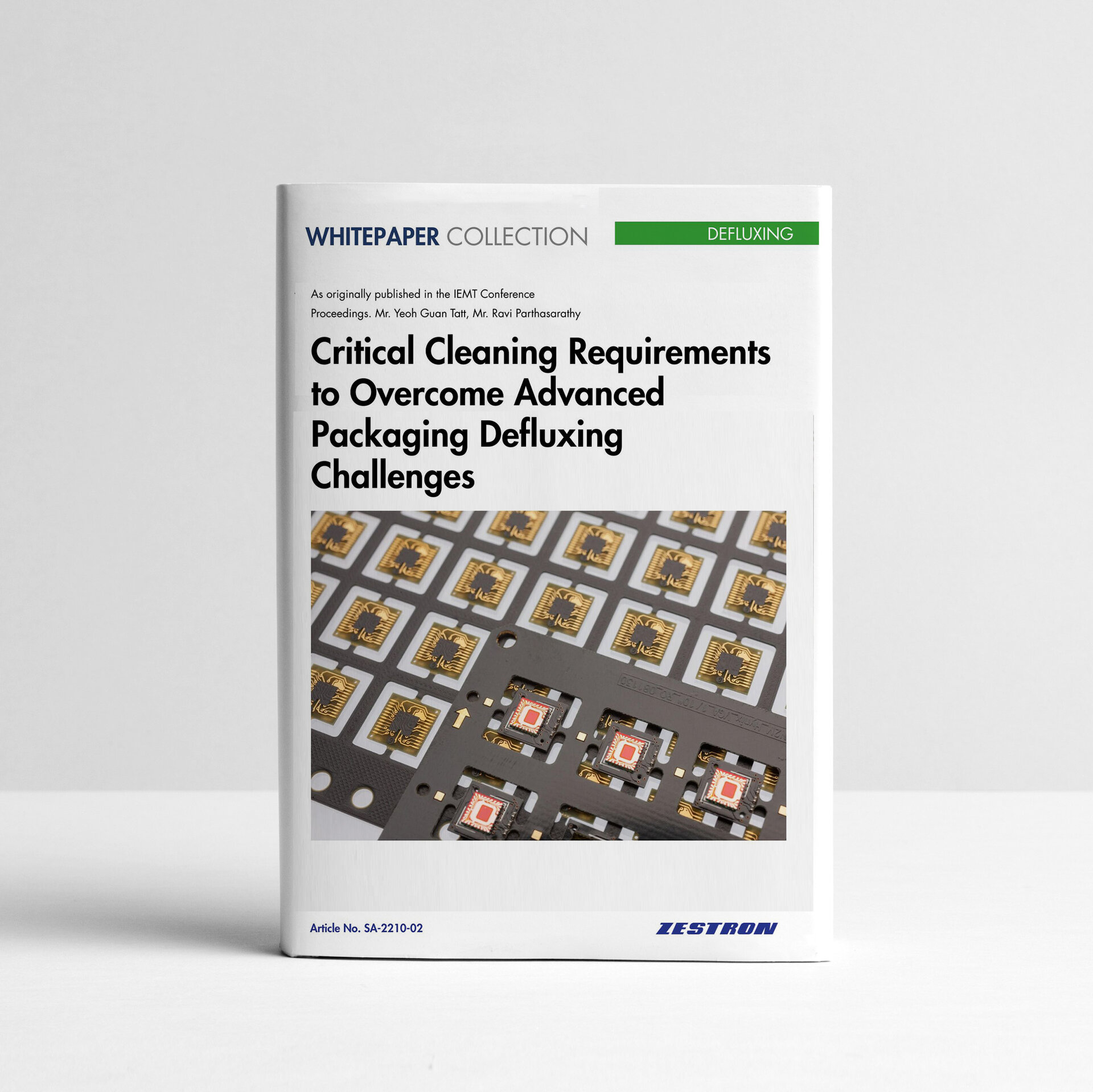
Whitepaper-collection Critical Cleaning Requirements to Overcome Advanced Packaging Defluxing Challenges
» FREE «
[ZESTRON South Asia - Yeoh Guan Tatt, ZESTRON Americas - Ravi Parthasarathy, M.S.Ch.E.]
ABSTRACT:
As technology advances, wafer-level packages have emerged in many different varieties. Computing has evolved significantly over the years. Chips integrated with additional functionalities to improve performance, processing challenges, storage and networking has become standard. The development of the packages such as SiP, fcBGA, PoP, 2.5D, etc. which utilizes multiple or larger die sizes, increased bump counts, lower standoff height and a large variety of components on the packages have reduced the effectiveness of cleaning.
The common packaging interconnect is using solder and die attached to a substrate by a solder reflow process. The flux residues after soldering pose a cleaning challenge, especially underneath these extremely low-profile components. As standoff height reduces, flux residues have less area to outgas during reflow. Partially removed or untouched residues can lead to reliability failures as consequences of electrochemical migration and dendrite growth as well as electrical leakage currents. Effective cleaning improves product reliability by ensuring optimal condition for subsequent processes, such as wire bonding, underfill and molding.
This presentation discusses the breakthrough in cleaning challenges for advanced packaging, especially when addressing factors like high density assemblies, latest flux formulation and low standoff heights. The most common cleaning system used for cleaning advanced packaging substrate is a conveyorized spray-in-air inline cleaning system. The discussion extends to how effectively the cleaning process needs to be balanced, in terms of chemical, mechanical and thermal energies. We will also explore the key cleaning parameters that lead to successful removal of flux residues from underneath the low-profile components. The authors will conclude with several customer case studies to validate the above findings For more information request for this free whitepaper.
Delivery Form: PDF / Article-No: SA2210-02
